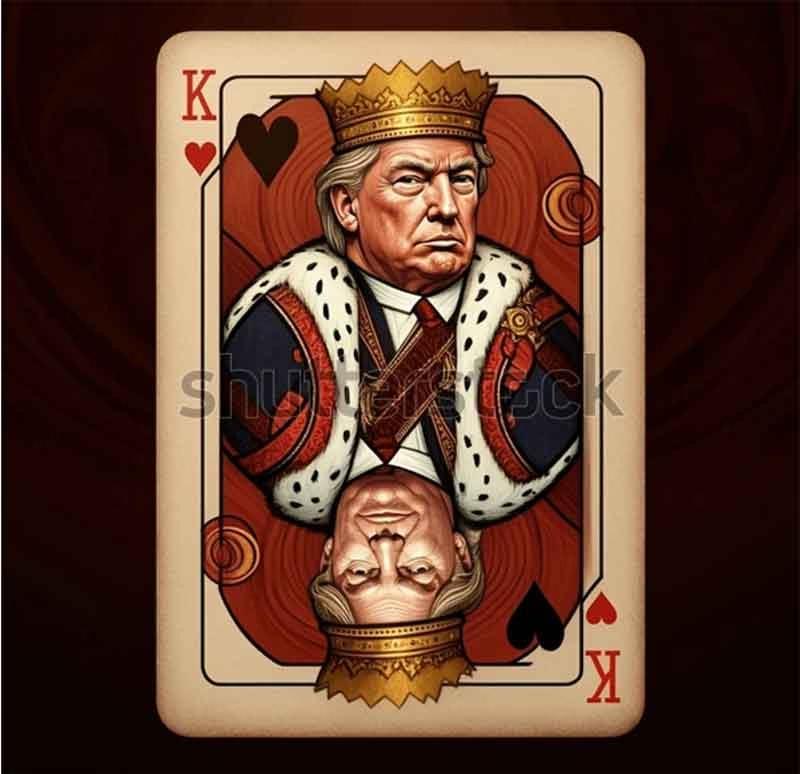
( Please note the article was written on March16, 2020, before the government and RBI announced some reliefs, many of them for specified periods. It can not be anticipated for how long the pandemic and the crisis would continue. Still the comment is relevant given India’s ground realities, well known leakages, pilferage of relief funds etc.)
Share market going down is a paper loss and does not directly impact real production since its movements are based on expectations about the future.
So, here the share market decline may impact about 3% of Indians. The other 97% which are not in the news will be the real sufferers.
`Manic Monday’ on March 9th has been followed by another one. Earlier the fall was 5.17% and now almost 8%. The rise on Friday was due to the intervention by public financial institutions, obviously on instructions from above. It is about 20% below its peak and can be characterized as a bear market. Indian markets have followed the globalfinancial markets since they are inter linked, even though there are India specific factors like, the near collapse of the Yes Bank.
The big news has been that trillions of dollars of global wealth has been lost. In India also headlines pointed to lakhs of crores of investor wealth evaporating with the richest losing the most. Since only a miniscule proportion of the population holds shares in listed companies, this loss is not widespread. For instance, in the largest company in India, Reliance Industry, about 2.2 million individuals hold about 7.8% of the shares of the company. The promoter group holds roughly 50% of the shares. Financial institutions, mutual funds, etc. hold the rest and here also the concentration is with the well-off.
So, here the share market decline may impact about 3% of Indians. The other 97% which are not in the news will be the real sufferers.
Share market going down is a paper loss and does not directly impact real production since its movements are based on expectations about the future.
So, the collapse signals that the wealthy have turned pessimistic about the economy andexpect its rapid decline and a hit on profits.This leads to lower investment and demand.
Adverse impact on a wide range of businesses is apparent. Travel, trade, tourism, hotels, airlines and so on are obviously impacted. Apple has announced closure of stores outside of China. Malls, cinemas and so on have been also closed. People are travelling less so there will be less use of taxis and buses. Demand for petroleum products has declined and so has the demand for cars. In China,the largest car market, sales are reported to have dipped 80%.
To prevent spread of the virus, whole areas have been quarantined and production and trade stopped. For instance, now almost all of Italy and Spain are in lockdown. The result is reduced incomes and further fall in demand which reacts back on production and employment. As businesses shut down or their sales decline, workers are retrenched. Globally, reports of workers being told to take unpaid leave are trickling in. In the US the employers are being mandated to give paid sick leave.
While those employed in the organized sector in India have some security of employment that is not the case with the unorganized sectors. Even many employed in the organized sector are contract workers who can be easily laid off.
Workers at airports, malls, shops, cinema halls, hotels, restaurants, taxi drivers, etc., face loss of work and incomes. Since the unorganized sector employs 94% of the work force, the consequent fall in demand is large.
In the already slowing Indian economy, income generation had slowed down and with that the consumer confidence had suffered according to the RBI. This has declined further due to the spread of the new virus leading to reduced purchases of discretionary items like, consumer durables or curtailing of holidays.
Clearly, the fear factor makes people cautious and they spend only on necessities.
People begin to hold more cash and build an inventory of essential items at home lest they face difficulty in a lock down. Shelves in super markets across the globe are being emptied out.
Payment via electronic forms and internet may increase as happened during demonetization but overall, purchases will decline.
The poor who are losing incomes would not have the savings to stock up on essentials or carry out electronic transactions. They, who live cheek by jowl in unhygienic conditions are likely to be the worst sufferer. Are we planning for them?
The small sector which produces cheap products for the poor and ancillaries for the large and medium sectors are facing shut down. The cottage sectors would also suffer similarly. Orders are getting cancelled and using force majeure, payments are withheld which puts pressure on working capital. Even when demand revives, would they have capitalto restart production?
Their collateral may be encashed by those who have lent to them and/or their debt would balloon. NPAs are likely to rise since businesses may not be able to repay loans as they fail.
In India, testing has been limited and that is the big danger for spread. Such a strategy has overwhelmed Italy, Iran, Spain and the USA.
Reports suggest that health facilities are getting overwhelmed and choices are being made as to whom to treat. If this happens in India the poor will be at the tail end.
South Korea followed a different strategy and controlled the spread.
Commodity prices fall as demand declines and inflation moderates which will counter demand decline, but not enough. For instance, decline in petro goods prices will help lower inflation but since travel is restricted more of diesel will not be used.
All energy producers like, Reliance and ONGC in India and BP and Shell globally became one of the triggers for the manic Monday.
Interest rate cut by Central Banks like, the Fed in the US and RBI in India will hardly change the sentiment since profits are expected to fall. It will also not boost investment since capacity utilization has declined.
Fiscal policies can help boost demand via employment generation. Infrastructure investment is one possibility but attention is not on these matters. Action would be requiredto check business failures.
As production declines, government revenues will come under pressure. But expenditures will rise as the population faces a lock down and pressure on public health infrastructure grows. The budget deficit will rise. But this is not the usual business cycle in which monetary-fiscal policies can turn things around – they can only slow the collapse taking place. Let us hope that the virus dissipates soon.
In brief, the future is unknowable and therefore always uncertain. One can deal with it when the change is not too large or too unexpected.
Covid 19 has spread rapidly, creating acute uncertainty and produced a supply shock. It is impacting everyone but more so those at the margins who usually are not headline material.
(Dr. Arun Kumar is Malcolm Adiseshiah Chair Professor, Institute of Social Sciences, New Delhi. He was earlier in JNU.
He is the author of two recent books :
Indian Economy since Independence: Persisting Colonial Disruption.( Vision Books.)
Understanding the Black Economy and Black Money in India: An Enquiry into Causes, Consequences and Remedies
SIGN UP FOR COUNTERCURRENTS DAILY NEWS LETTER
















































